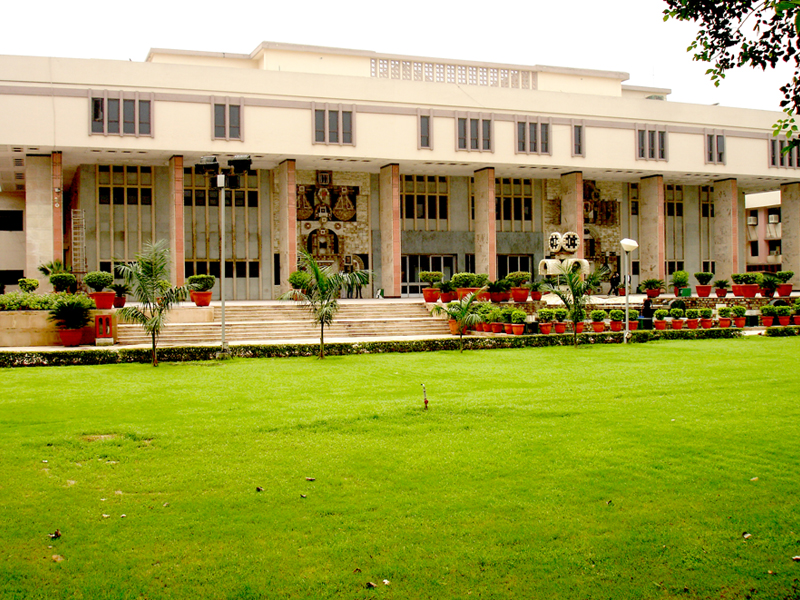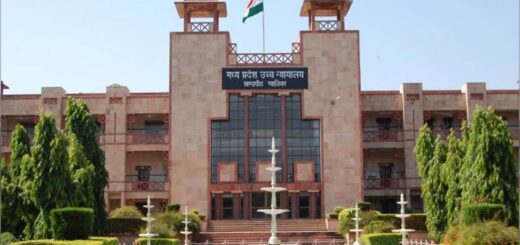Rising Abuse of Social Media to Harass Minors: Delhi High Court Refuses Pre-Arrest Bail to Man Charged with Blackmailing a 15-Year-Old Girl.

The Delhi High Court rejected the anticipatory bail request of a man accused of forcing a 15-year-old girl into sexually explicit acts over video calls, recording them without her consent, and using these recordings to blackmail her. The Court pointed out that this case highlights the growing misuse of social media and technology to exploit and intimidate vulnerable people, especially minors. The High Court was reviewing a bail application related to charges under Sections 354(D)/506 of the Indian Penal Code, 1860, and Section 12 of the Protection of Children from Sexual Offenses Act, 2012. Justice Amit Mahajan noted, “This case highlights the increasing misuse of social media and technology to exploit and intimidate vulnerable individuals, particularly minors.”
Advocate Kashif Athar represented the applicant, while Additional Public Prosecutor Rajkumar represented the respondents. The FIR was filed based on a complaint from the victim, a 15-year-old girl in Class XI, who reported severe harassment, blackmail, and sexual exploitation by the applicant, Saiful Khan, and co-accused Sameer. The victim claimed that in November 2022, Sameer began following her to school and repeatedly asked to be friends. After a year, he reached out to her on Instagram, saying he wanted a “normal friendship.” The victim hesitantly started talking to him and shared some clothed photos. In May 2024, the applicant contacted her on Instagram, claiming to be Sameer’s friend. Despite her refusal to engage, Saiful sent her a nude photo and threatened to make it public.
The victim, afraid of being publicly shamed, was pressured into having Instagram video calls with Saiful, during which she was forced to undress. The accused used these recordings to blackmail her repeatedly. Later, Sameer, a co-accused, also began to threaten her, insisting she participate in similar video calls with him. Under this pressure, the victim agreed, and Sameer recorded those calls too. She claimed that they constantly threatened to release her photos and videos. The applicant’s lawyer argued that he was falsely accused. It was noted that the applicant had left India for a job in Riyadh, Saudi Arabia, in early September 2024 and returned voluntarily in November 2024 after learning about the FIR.
On the other hand, the State raised concerns that the applicant might try to intimidate the victim or influence witnesses if granted bail. The threats made by the applicant suggested a serious risk of hindering justice. The Bench pointed out that granting pre-arrest bail under Section 482 of the BNSS is an extraordinary measure and should be used cautiously. Therefore, pre-arrest bail should not be given routinely. Citing State v. Anil Sharma; (1997) 7 SCC 187, the Bench stated, “It is established that custodial interrogation is more effective than questioning a suspect who has a favorable order under Section 482 of the Bharatiya Nagarik Suraksha Sanhita (BNSS).”
The claims against the applicant are very serious, involving the exploitation and sexual abuse of a young girl. The applicant is said to have forced the victim into performing sexual acts over video calls, recorded these acts without her permission, and then used the recordings to blackmail her. These actions not only disrespect the victim’s dignity and privacy but also break serious laws under the BNS and the POCSO Act, the Bench stated. It was also noted that the allegations suggest the applicant exploited a child through coercion and blackmail for pornographic reasons. The act of recording and sharing explicit content involving a minor is a serious crime. “Considering the allegations and the statements from the victim and co-accused Sameer, this Court believes that allowing pre-arrest bail would create a bad example and harm efforts to protect children from such terrible actions,” the Bench emphasized.
The applicant’s actions highlight a troubling trend of using the anonymity and wide reach of social media to commit sexual crimes against minors. The Court emphasized the need to recognize the serious societal consequences of these actions and the importance of sending a clear message against the misuse of technology. Given that this case involves electronic devices and digital evidence, the Bench noted that the Investigating Agency faces a challenging task and should be allowed the necessary freedom to conduct their investigation as they see fit. While the principles of presumption of innocence and the right to liberty are essential, they must be weighed against the seriousness of the crime, its impact on society, and the need for a thorough investigation. The Bench observed that the evidence presented by the prosecution indicated a clear involvement of the applicant, and granting pre-arrest bail would hinder the ongoing investigation, leading to the dismissal of the application.
Cause Title: Saiful Khan v. State & Anr [Neutral Citation: 2024:DHC:9378]
Appearance:
Applicant: Advocates Kashif Athar & Faraz Mirza
Respondents: APP Rajkumar, SI Pooja









